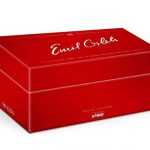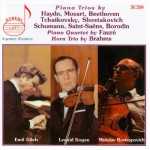
Composer: Ludwig van Beethoven
Performer: Beethoven Quartet, Dmitri Tsyganov, Nikolai Zabavnikov, Fyodor Druzhinin, Sergei Shirinsky
Number of Discs: 8
Format: FLAC (tracks)
Label: Melodiya
Release: 2020
Size: 2.18 GB
Recovery: +3%
Scan: yes
CD 01: String Quartets no. 1 & 2
CD 02: String Quartets no. 3 & 4
CD 03: String Quartets no. 5 & 6
CD 04: String Quartets no. 7 & 8
CD 05: String Quartets no. 9 & 10
CD 06: String Quartets no. 11 & 12
CD 07: String Quartets no. 13 & 14
CD 08: String Quartets no. 15 & 16, Groee Fugue op.133
Firma Melodiya presents one of the best recordings of chamber music – the complete quartets of Ludwig van Beethoven performed by the State Beethoven String Quartet.
The quartet existed from 1923 to 1990, almost as long as the Soviet Union did, and took a truly unique place in the history of music and performing arts of the Soviet period.
In 1925 and 1927, the quartet won the First and Second All-Union Quartet Competitions. Named after Beethoven in 1931, the quartet became the country’s leading chamber ensemble. Heinrich Neuhaus, Samuil Feinberg, Alexander Goldenweiser, Konstantin Igumnov, Lev Oborin, Maria Yudina, Vladimir Sofronitsky, Maria Grinberg, Sviatoslav Richter, Emil Gilels, Tatiana Nikolayeva, David Oistrakh, Sviatoslav Knushevitsky and Mstislav Rostropovich were just a few of the artists who performed with the Beethoven Quartet.
Beethoven and Shostakovich were two powerful musical beacons in the quartet’s repertoire. The Beethovenians were the ones who convinced the young Shostakovich to turn to the genre of quartet. Shostakovich felt a deep spiritual connection with each of the musicians (the third and fifth quartets were written for the Beethoven Quartet, and the eleventh to the fourteenth were dedicated to one of the members). In 1925, the young musicians leant Beethoven’s quartet, Op. 131, and after a successful tour of Germany they ventured to perform a complete cycle of seventeen quartets.
Each of the four musicians had a remarkable versatile musical gift. Dmitri Tsyganov, who gave more than fifty years to the Beethovenians, was an undeclared leader of the quartet. Cellist Sergei Shirinsky, who combined the membership in the quartet with his concertmaster duties in the cello groups of the leading Moscow orchestras, remained a supreme authority when it came to strokes and performing versions.
In the early 1960s, the line-up went through a number of changes. Nikolai Zabavnikov, a student of Dmitri Tsyganov, replaced Vasily Shirinsky as a second violin; violist, composer and teacher Fyodor Druzhinin, a student of Vadim Borisovsky, took the place of his teacher. That line-up realized the most massive chamber recording in the history of Soviet performing art.
The recordings of the Beethoven quartets were timed to the composer’s 200th anniversary and became a highlight of the world-wide Beethoveniana. The set released by Firma Melodiya in the early 1970s was awarded the Beethoven’s 200th anniversary commemorative medal, an honorary diploma from the Association of Japanese Musicians and the medal of the Academia Nazionale di Santa Cecilia in Italy.



